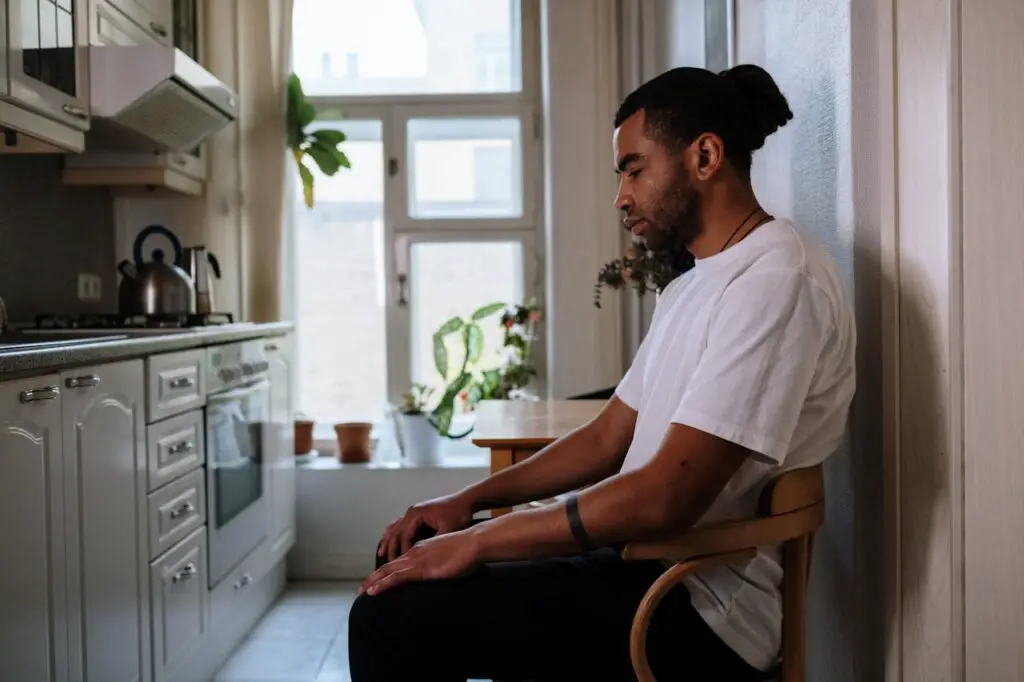Why Some People in Their 30s and Beyond Stop Talking to Friends: 10 Surprising Reasons

As we age, priorities shift, routines change, and for many people, friendships that once felt like lifelines slowly fade away. It is not always because of drama or major fallouts—often, it is subtle, emotional, and deeply personal. People who lose interest in talking to friends as they get older usually have specific reasons that may not be obvious to outsiders. Whether it is about preserving energy, prioritizing self-growth, or simply evolving with time, here is a look at 10 real reasons why adults often pull back from friendships—and why it is more common than you might think.
1. Emotional Bandwidth Shrinks With Age

As people get older, their emotional energy becomes more limited, and they become more selective about where it goes. Between juggling careers, family responsibilities, health concerns, and life’s constant curveballs, many find themselves drained by the end of the day. This reduced emotional bandwidth makes it harder to keep up with frequent conversations or maintain large social circles. They may still care about their friends deeply, but the capacity to engage in regular talks just is not there anymore. It becomes a quiet choice to conserve emotional resources and prioritize only the relationships that feel most nourishing.
2. They Outgrow Surface-Level Connections
With maturity comes a stronger craving for deeper, more meaningful relationships. Adults often lose interest in friendships that revolve around gossip, shallow topics, or nostalgia. If conversations feel repetitive or emotionally unfulfilling, they might naturally begin to drift away. This is not about being snobbish—it is about wanting authenticity and alignment with current values, which may no longer match those of old friends. What once bonded people together—such as shared classes, parties, or experiences—may not be enough to sustain a connection without emotional depth and common ground in the present.
3. Life Priorities Take Over

In your teens and twenties, friendships often rank high on the priority list. But as people move into their thirties, forties, and fifties, other areas of life—such as career advancement, raising children, caring for aging parents, or even pursuing personal goals—can take precedence. It becomes increasingly difficult to carve out time for long conversations or meetups. This shift does not always stem from a lack of interest; it is a reflection of changing priorities. Time becomes more valuable, and people are forced to make tough decisions about where to allocate it, often at the expense of friendships that require more effort than they can give.
4. They Have Been Burned Too Many Times

With age comes experience, and unfortunately, not all experiences are positive. Many adults have dealt with betrayal, one-sided friendships, or friends who disappeared during tough times. Over time, this emotional wear and tear can lead to a protective detachment. Instead of continuously giving people chances, they choose peace and distance, opting for solitude over potential disappointment. Trust becomes harder to give freely, and the emotional scars from past friendships make it easier to walk away from new or old connections that do not feel entirely safe.
5. They Prefer Quality Over Quantity

Younger people often thrive on a large group of friends, but older adults tend to value a small, tight-knit circle. They may not be interested in keeping up with everyone they have ever known, especially if those relationships do not bring them peace or joy. As a result, they stop initiating conversations with casual friends or acquaintances and focus more on the few people who truly matter. Instead of having many surface-level interactions, they prefer deeper, more intentional connections that add value and stability to their lives.
6. Mental Health Struggles Make It Harder to Connect

Depression, anxiety, and burnout are more common than we often acknowledge, especially in adulthood. These issues can make socializing feel overwhelming, even with close friends. When someone is struggling mentally or emotionally, the idea of small talk or even catching up can feel exhausting. Rather than explaining their state over and over again, many adults simply retreat into silence. They are not trying to shut others out—they are just trying to survive. In these moments, withdrawing feels like the safest way to protect themselves from added emotional labor.
7. They Have Become Comfortable Being Alone

One of the most underrated joys of growing older is discovering the beauty of solitude. Many people come to realize that they do not need constant interaction to feel fulfilled. They start enjoying their own company more and may lose the urge to stay in regular contact with friends. It does not mean they are lonely—it means they have found peace in being alone, which often replaces the need for frequent socializing. This self-contentment can be liberating, but it often leads to misunderstandings if friends interpret the silence as disinterest or rejection.
8. Friendships Start to Feel Like Obligations

When adult friendships start revolving around routine check-ins or obligatory birthday wishes, they lose their spark. What once was fun and spontaneous can start to feel like another item on an already long to-do list. If a friendship feels more like a chore than a source of joy, people might begin to disengage—especially if the effort does not feel mutual. Adults are quicker to question whether relationships are genuinely enriching or simply habitual, and if the answer leans toward the latter, they often let those connections fade without confrontation.
9. They Are Focused on Self-Growth or Healing

Healing from past trauma, building new habits, and working on personal growth often require internal focus. People in this phase of life may intentionally take a break from socializing to pour energy into themselves. During these periods of transformation, old friendships that no longer align with who they are becoming might naturally fade away. It is not about cutting people off—it is about choosing inner growth over external connection. Sometimes, the best thing a person can do for themselves is step back and reassess which relationships are helping them thrive and which are holding them back.
10. They Realize Not Every Friendship Is Meant to Last Forever

As people mature, they come to accept that some friendships are only meant for certain seasons of life. The friends who were there during school, college, or early adulthood might not grow in the same direction. Rather than forcing the connection to survive out of habit or guilt, many simply allow the relationship to dissolve. This acceptance brings peace and removes the pressure to constantly stay in touch with everyone from the past. It becomes easier to embrace the idea that some relationships served their purpose, and that letting go does not mean failure—it means growth.
Final Thoughts

Losing interest in talking to friends as you get older does not automatically mean you have become cold, distant, or antisocial. In most cases, it is a sign of inner evolution—of choosing quality over quantity, prioritizing peace, or just honoring your current emotional capacity. If you have found yourself pulling away from old friendships, you are not alone. And if someone you care about has gone quiet, it might not be personal—it might just be life. Friendships change, and that is okay. As long as we stay true to ourselves and communicate with compassion when it matters, there is no wrong way to grow.

Leave a Reply